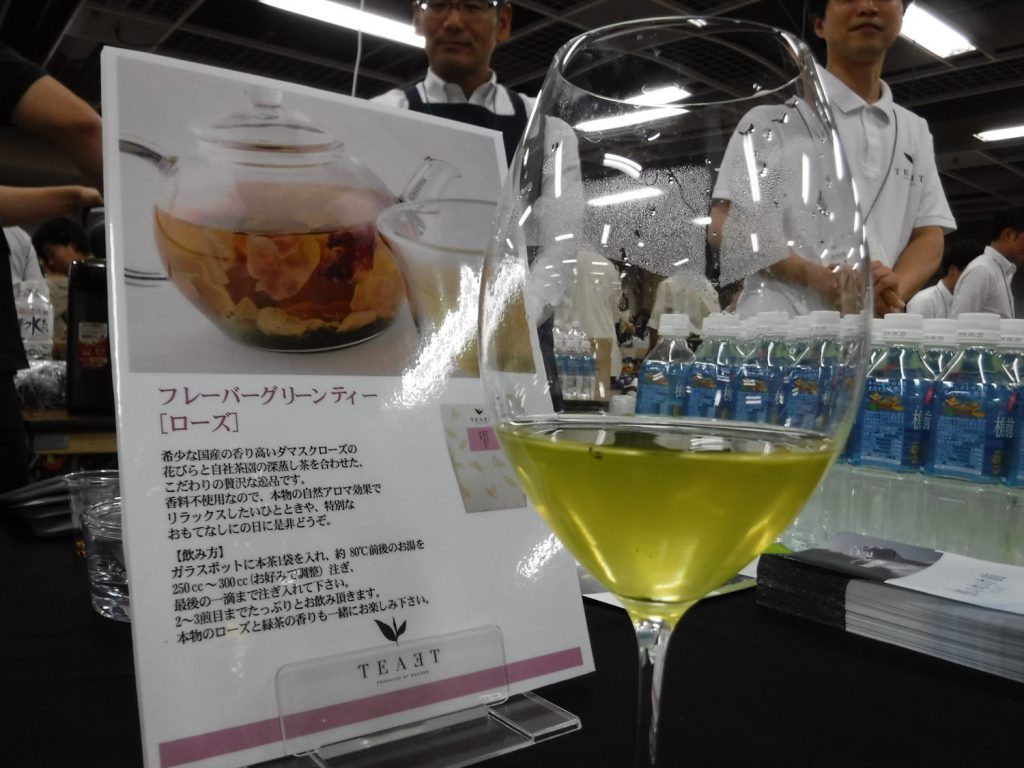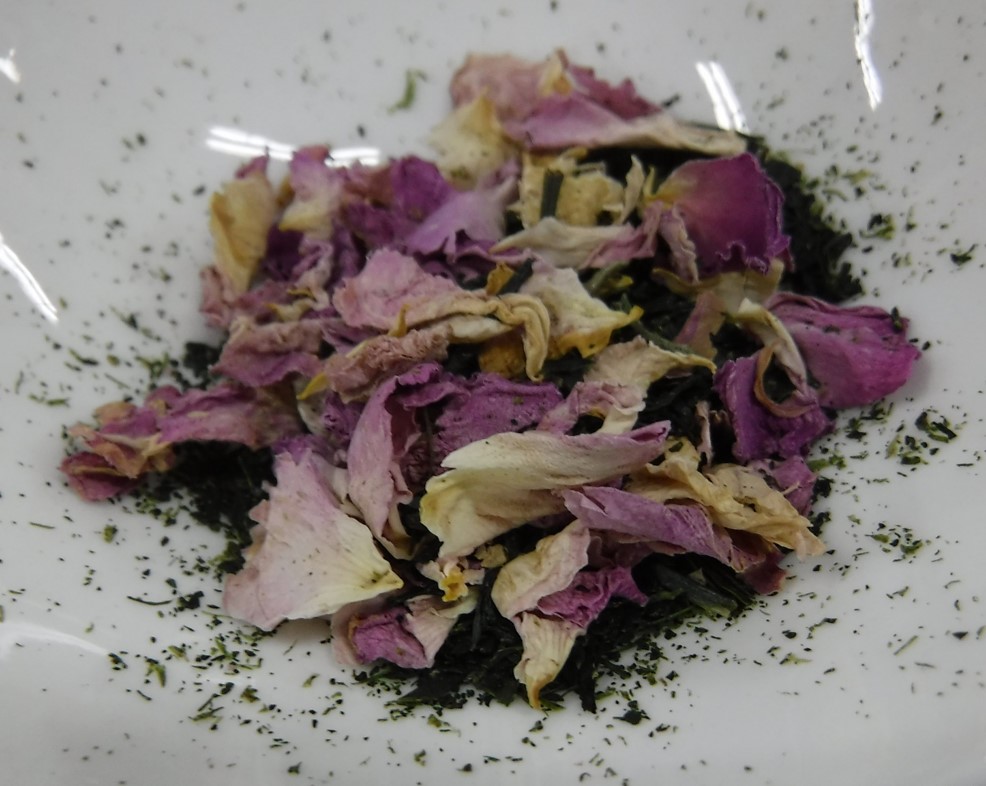I could meet fantastic specialty teas at Japan Tea Festival 2018, held from 29th to 30th September in TAITOKAN in Asakusa, Tokyo. The sea of people in the event venue would indicate the fever and demand for excellent teas in Japan.
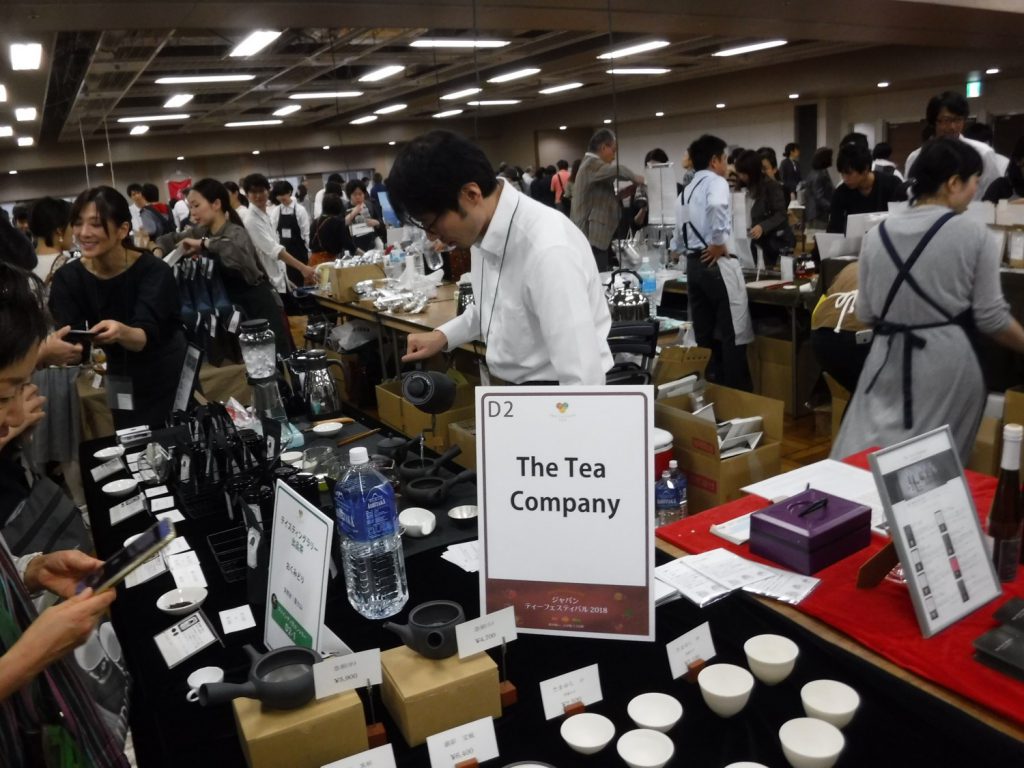
I’d like to share my favorite specialty teas found in Japan Tea Festival 2018 as follows. We can meet most of them at Tokyo Tea Party 2018 held from 30th Nov. to 2nd Dec. at Shibuya Hikarie in this winter. If you are interested in some teas, it is recommended to visit Tokyo Tea Party 2018 or election events of Japanese Tea Award 2018 held on the other areas, announced before.
(1) Black tea “Momoka Premium C-SF-5” by Imura-en
The name “Momoka” seems to mean “Peach aroma” in Japanese. As indicated by the name, this black tea has peach-like aroma. Mr. Imura has been sophisticated his skill of black tea production and his long successive effort create in the unique aroma and excellent flavor. Although he said it is difficult to regularly produce the sweet note like peach, his black tea has successfully sufficient aroma of peach-like sweet nuance in this year.
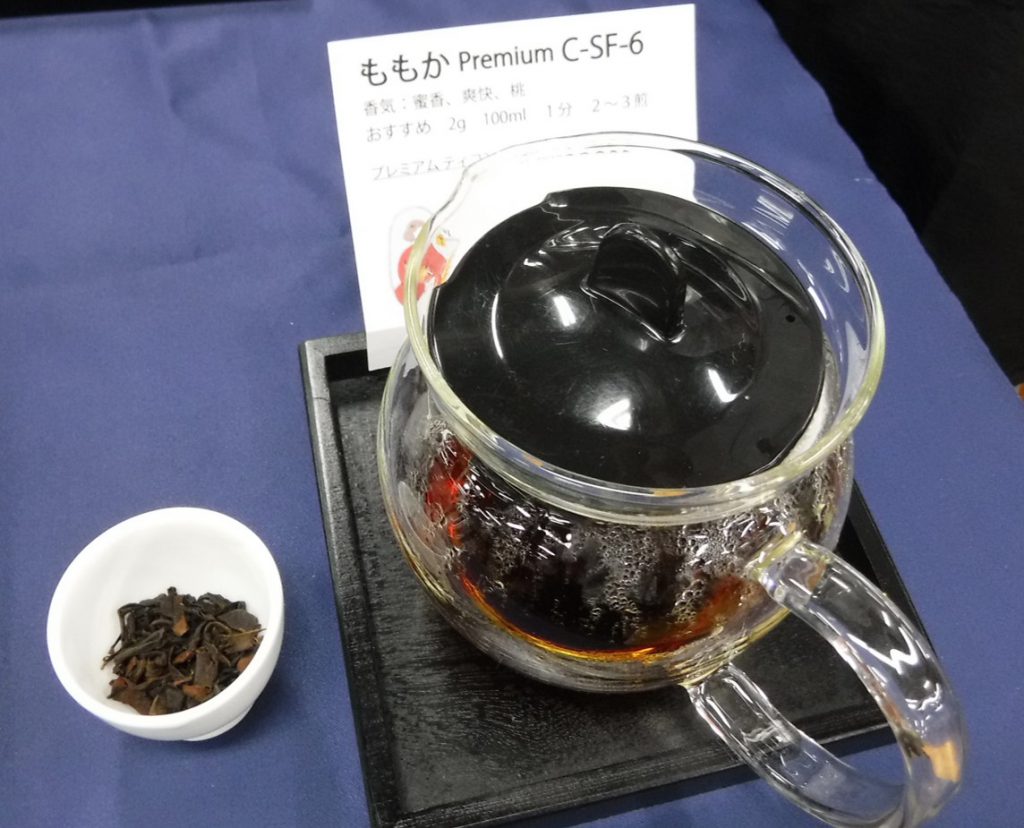
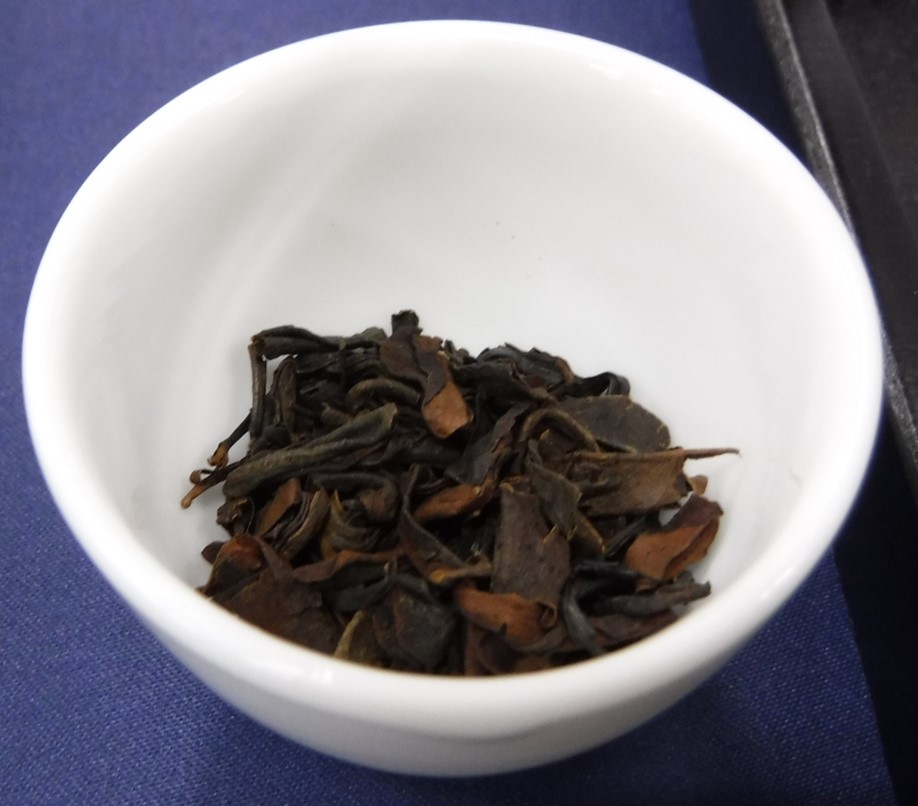 This “Momoka Premium C-SF-5” has been elected as “Platina Award” in Japanese Tea Award 2018 and we can taste it at Tokyo Tea Party 2018 at Shibuya Hikarie.
This “Momoka Premium C-SF-5” has been elected as “Platina Award” in Japanese Tea Award 2018 and we can taste it at Tokyo Tea Party 2018 at Shibuya Hikarie.
(2) Smoked Hojicha and Black Tea by Kaneroku Matsumoto Tea Garden
Mr. Matsumoto, the young tea farmer in Kaneroku Matsumoto Tea Garden, has been challenging to create unique and keen teas for long time. He has already developed many novel teas, such as Whisky barrel wood smoked black tea, Yuzu citrus wood smoked black tea, Genmaicha consisting GIAHS-certified tea and rice etc. In this day, I met “Yakushima cedar wood smoked Hojicha” first time! What impressive his creativity!
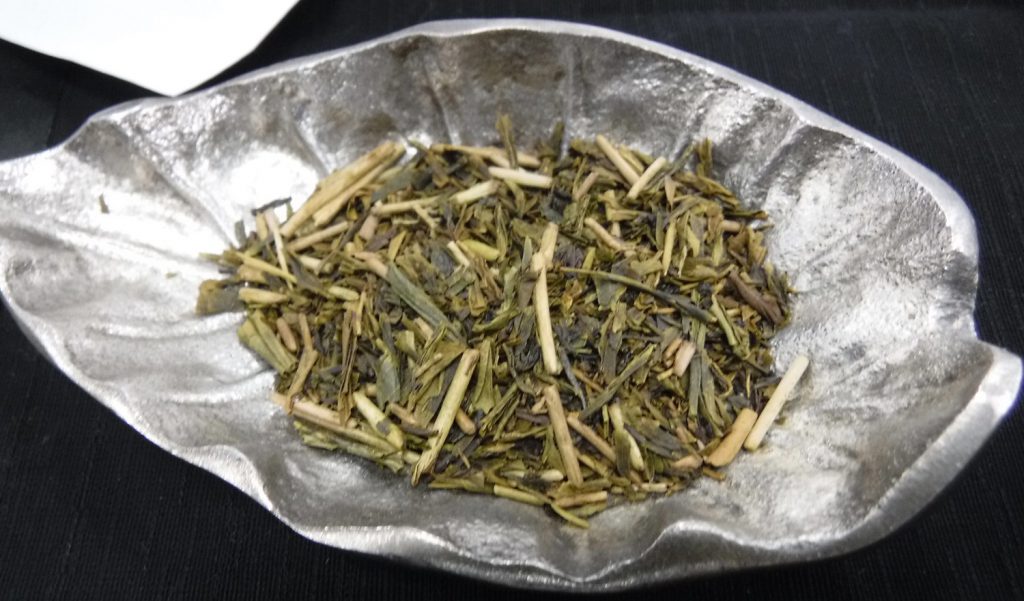
The appearance of “Yakushima Cedar Smoked Hojicha” produced by Kaneroku Matsumoto Tea Garden.
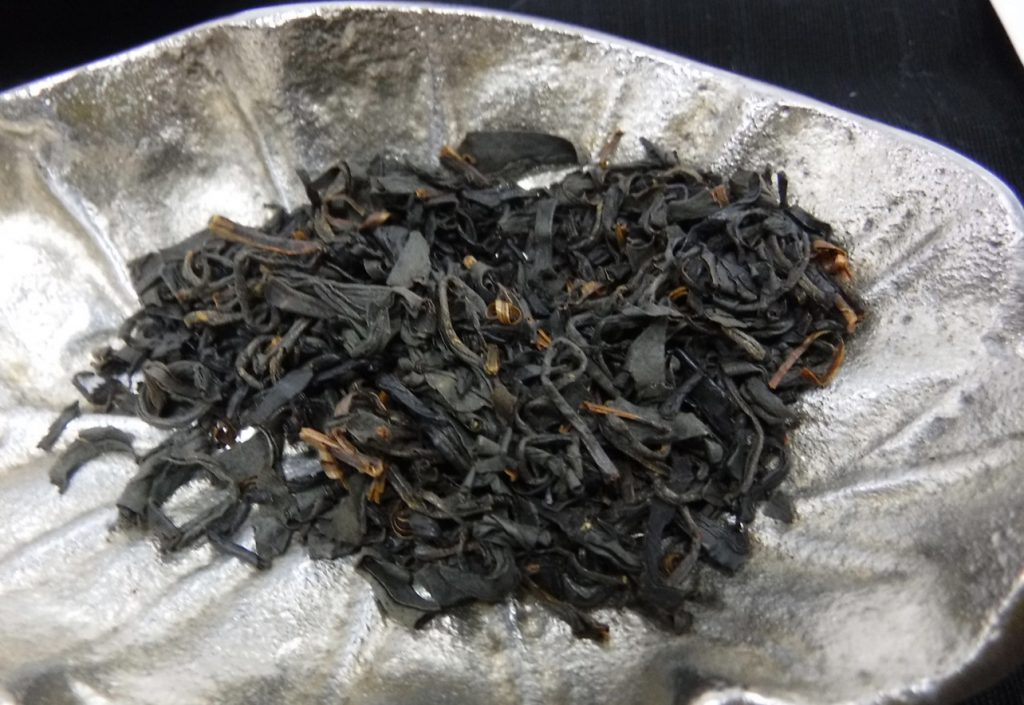
The appearance of “Whisky Barrel Wood Smoked Black Tea” produced by Kaneroku Matsumoto Tea Garden.
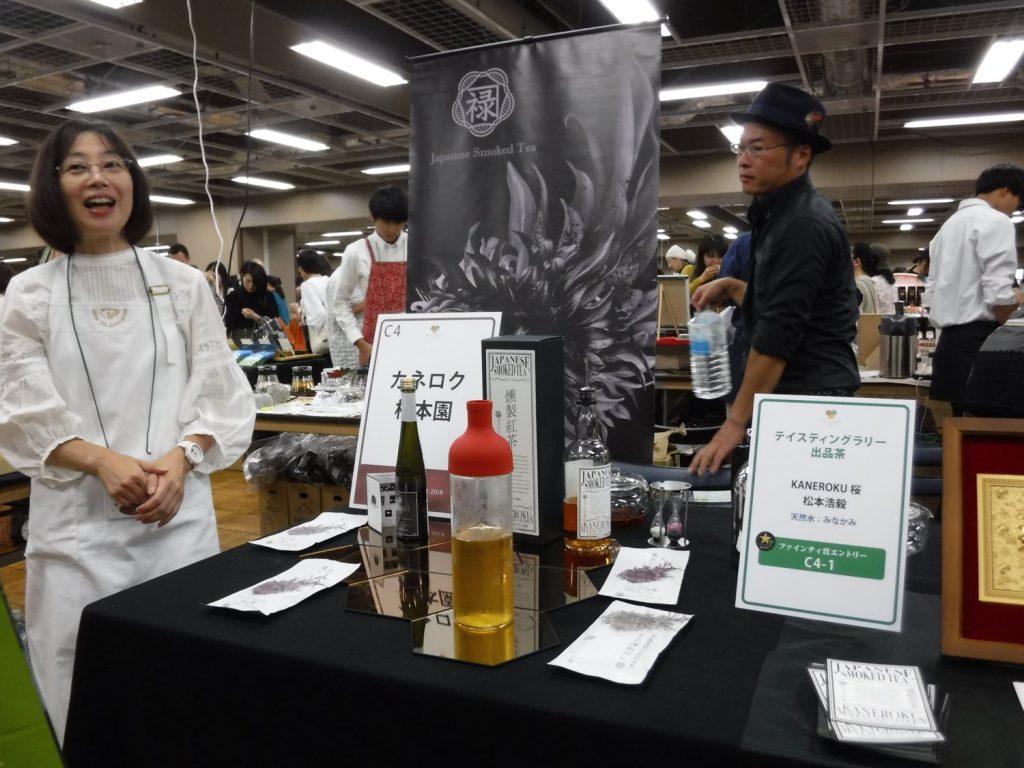
Kaneroku Matsumoto Tea Garden served cold-brewed teas of his unique smoked black tea and Hojicha.
In the event “C’est Bon le Japon” in France, his 3 unique teas won the prizes.
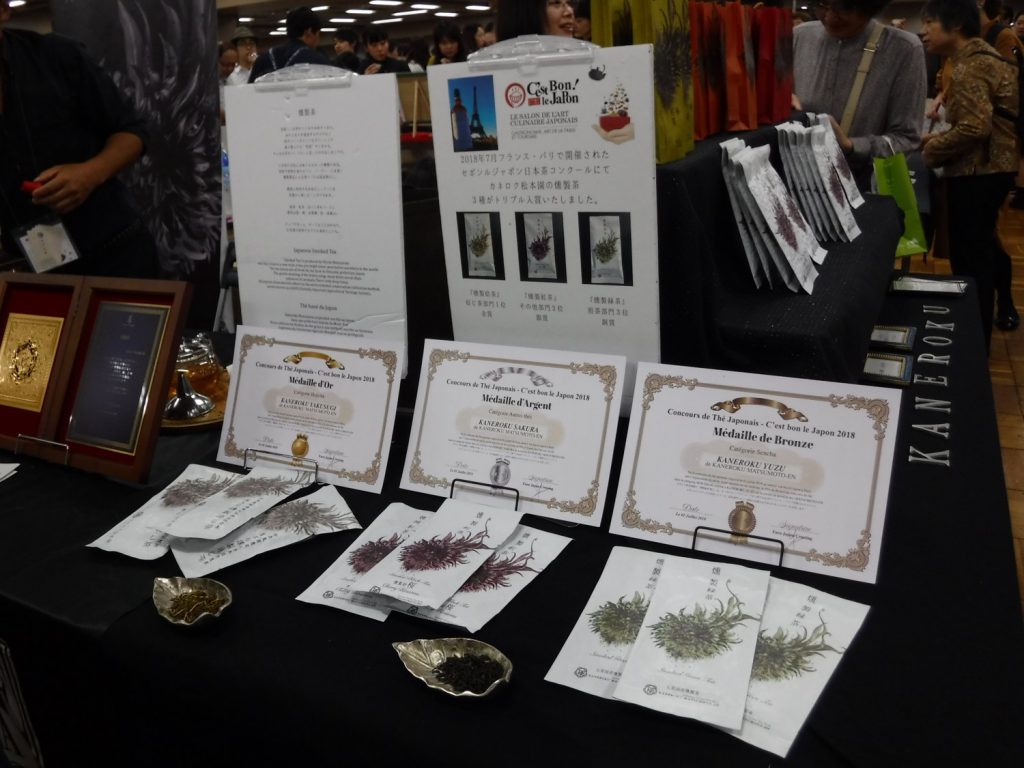
3 prizes for the specialty teas made by Kaneroku Matsumoto Tea Garden in C’est bon le Japon.
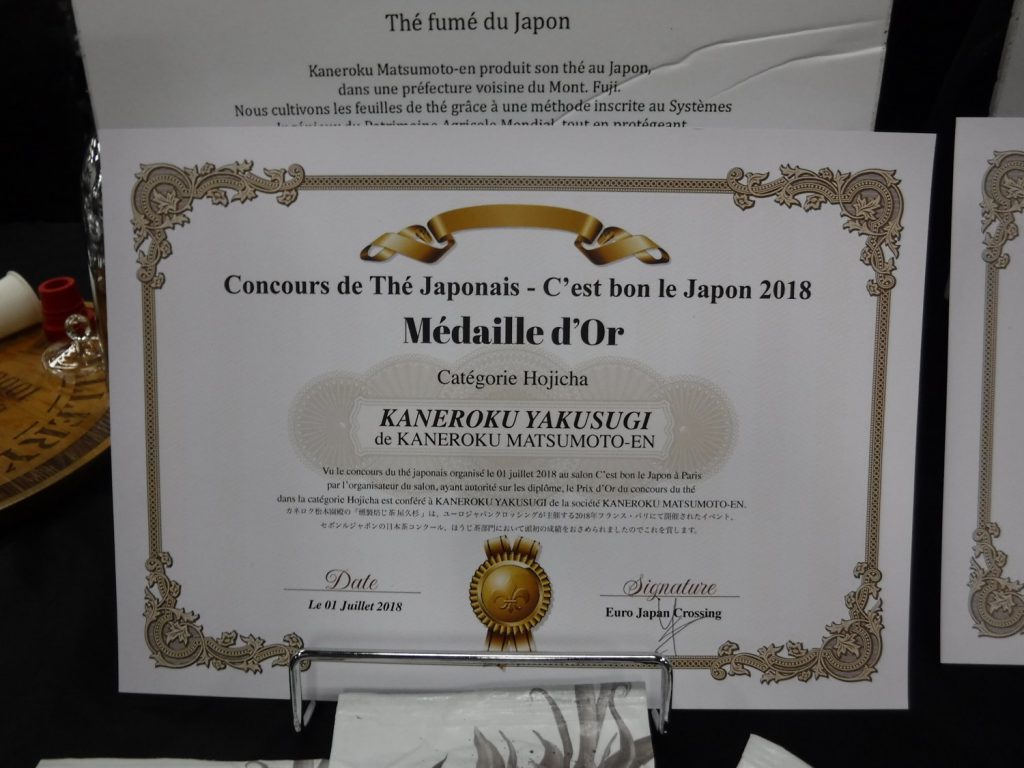
The gold prize for “Yakushima Cedar Wood Smoked Black Tea” made by Kaneroku Matsumoto Tea Garden in C’est bon le Japon.
These distinctive teas are sold in Yunomi. If you are interested in these unique teas, it is recommended to visit the page for Kaneroku Matsumoto Tea Garden in Yunomi.
(3) Black tea of ‘Karabeni’ made in Kawane tea estate sold by Thes du Japon
I could meet very rare cultivar ‘Karabeni’, which I have never seen on the research articles or book. Now the main Japanese cultivars for black tea are bred by crossing Japanese cultivars with Assam varieties. On the other hand, ‘Karabeni’ was bred from Chinese variety. Florent, the chief tea merchant in Thes du Japon, explained ‘Karabeni’ has herbal nuance due to its linage. It would be the reason why I felt puer-like aroma when I sip it, said Frolent.
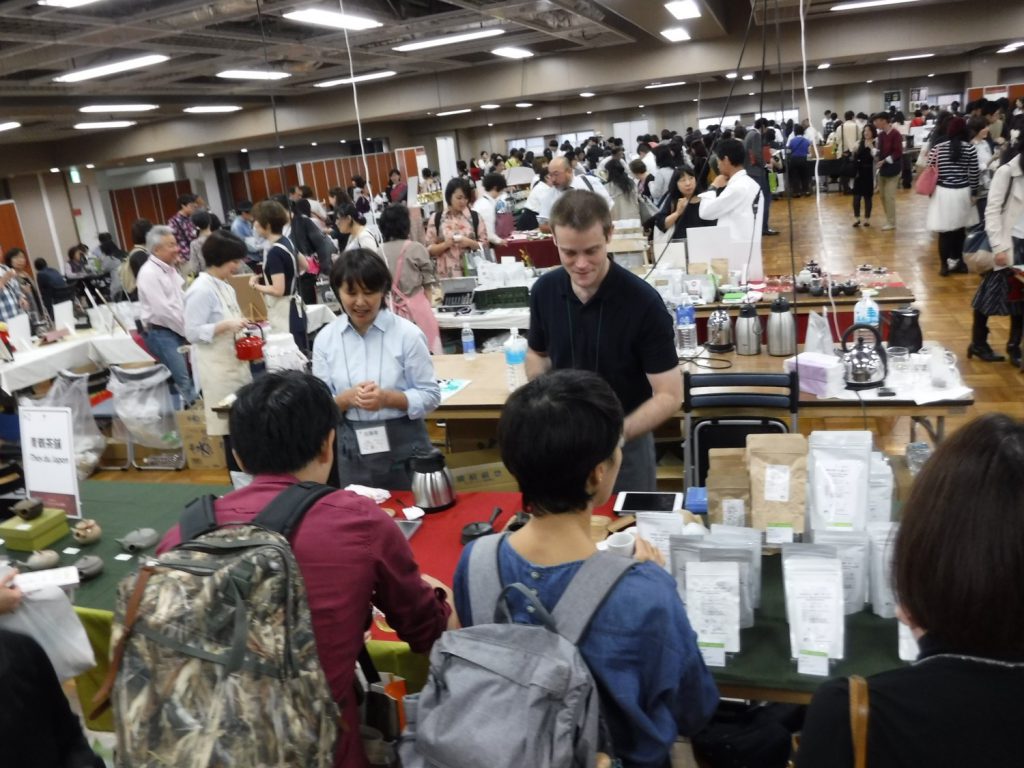
Florent kindly brewed some of his selected specialty teas and explained their features for us.
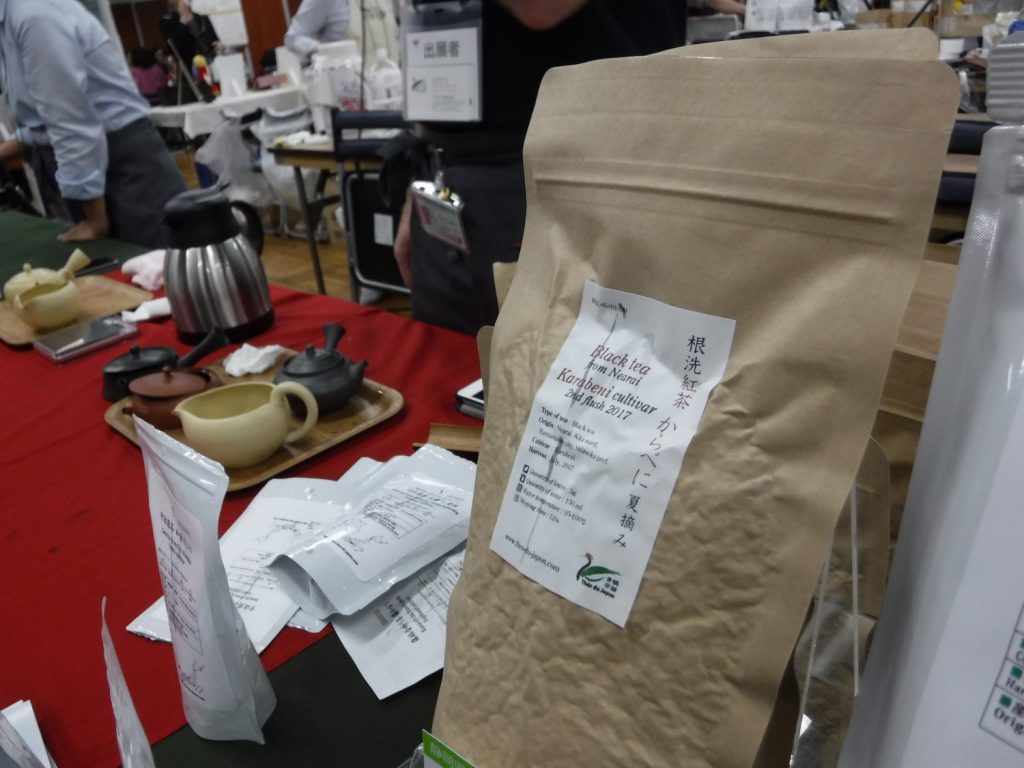
(4) Oolong black tea made by Kagoshima Horiguchi Seicha
Kagoshima Horiguchi Seicha is one of the largest tea farms in Japan. Now Horiguchi Daisuke, the chief of tea farm manager in Horiguchi Seicha, has been challenging to create new product from old knowledges and launching unique teas as Wakoen brand.
In recent years, he has been trying to produce an unique oxidized tea that has both features of oolong tea and black tea, based on the trial and error his grandfather experienced. Finally he has achieved to produced and launched “Oolong black tea”. This “Oolong black tea” won the “Fine Product Award” in Japanese tea award 2018, so we can see and taste it at Tokyo Tea Party 2018 held in Shibuya Hikarie.
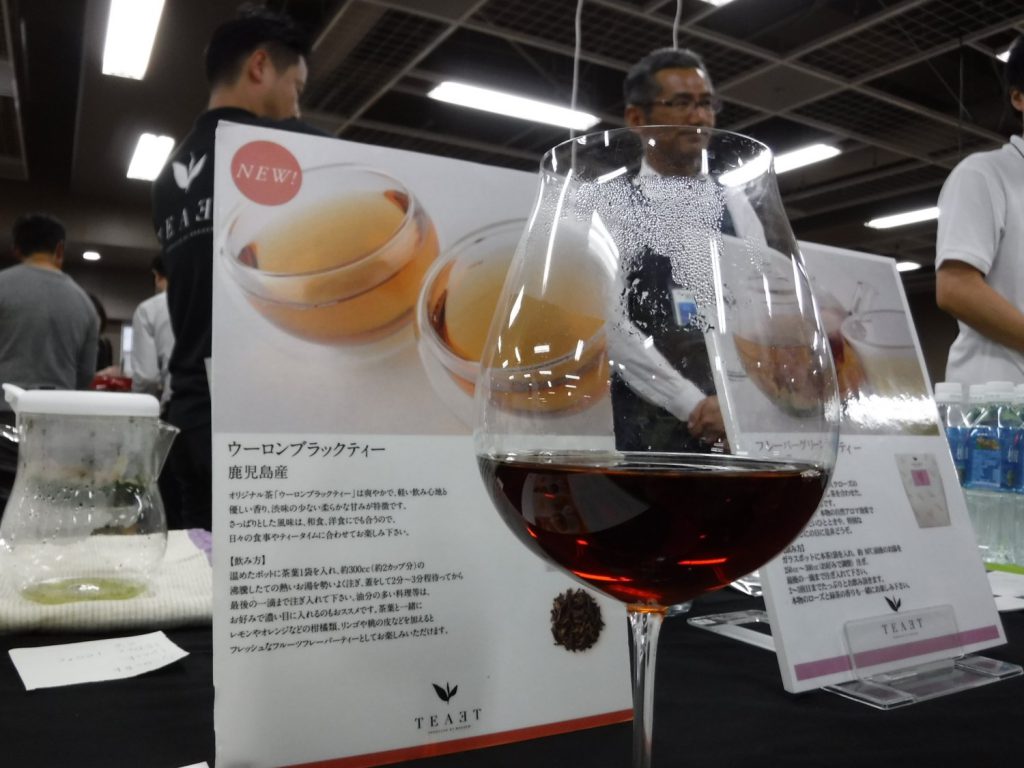 In addition, he now aims to establish Osumi peninsula brand. Thus he has tribally produced some mixture teas, which are deep steamed Sencha blended with agricultural products made in Osumi peninsula, such as rose and Yuzu citrus.
In addition, he now aims to establish Osumi peninsula brand. Thus he has tribally produced some mixture teas, which are deep steamed Sencha blended with agricultural products made in Osumi peninsula, such as rose and Yuzu citrus.
